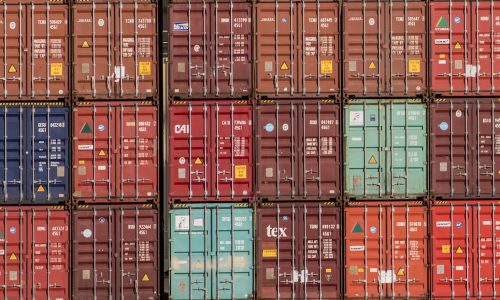Global Shippers Forum: Brussels must take a closer interest in the container shipping market as it recovers from Covid
The Global Shippers Forum has called on the European Commission to put the container shipping market under closer scrutiny as the industry enters the second year of its Block Exemption from normal competition rules and responds to the continuing stresses induced by the global health pandemic.
On March 23, 2020 the Commission announced its intention to renew the Consortia Block Exemption Regulation (CBER) unconditionally for a further four years, ignoring demands from shippers and other customer groups for revocation and substantial revision.
The CBER permits the exchange of commercially sensitive information between shipping lines operating in consortia in order to permit the sharing of space on vessels and the co- ordination of sailing schedules.
Commenting on the first anniversary of the renewal announcement James Hookham, Secretary General of GSF said: “The past 12 months have been a wild roller-coaster ride for everyone involved in world trade and international logistics with shipping rates, capacity availability and service quality reaching new extremes.
“But the degree of co-ordination and discipline between shipping lines has been remarkable and has attracted the attention of regulatory authorities around the world, most notably in the US, China and South Korea. Only the EU has remained silent, yet four of the biggest shipping lines in the world fall within its jurisdiction.”
Hookham continued: “The container shipping industry will undergo further change later this year as economies emerge from Lockdown and consumer spending patterns change as the service sector re-opens. It is vital that exporters and importers can see demonstrable action that their interests are recognised and respected”
“Shippers feel side-lined by the granting of Block Exemptions and other anti-trust protections. Their rights to a fair and open market have effectively been rejected in favour of greater supply side efficiency and relief from the costs and ‘hassle’ of checking compliance with normal competition rules. It is not unreasonable to expect that these exceptional privileges are kept under close review, especially during times of unprecedented market turbulence.”
Hookham added: “Yet the Commission has adopted a ‘legislate and forget’ approach and seemingly abandoned shippers and other users of shipping services such as freight forwarders and port operators, to the fate of a deliberately distorted market. Given the dependence of European trade on global container shipping services this ‘supervisory deficit’ needs to be corrected”.
GSF has identified three ‘must-do’ actions that the Commission should undertake to re-balance its supervision account and align itself with competition regulators elsewhere in the world:
- Equip itself with sufficient market data, and powers to acquire such data where it is not in the public domain, to be able to monitor the behaviour of the market.
- Establish performance thresholds, covering key service parameters such as capacity, rates and reliability, that will trigger further investigations if they are breached.
- Commence more frequent consultations with the industry’s stakeholders and representatives to understand the factors and experiences of ‘consumers’ of shipping line services, given its decision to abjure their rights to the protections otherwise enshrined in the EU Treaties.
Hookham concluded: “Our ‘Data-Triggers-Meetings’ formula will help restore some confidence to shippers that their interests are taken seriously by the Commission and signal their commitment to delivering the benefits they identified at the time of renewal. Today’s meeting with stakeholders should be repeated on a regular basis”
“As I speak, all those involved in world trade are waiting to see just how damaging the closure of the Suez Canal will become to schedules, service and shipping rates. With these additional factors yet to play out it is vital that competition regulators engage closely with this market to monitor the consequences of the special privileges they have granted it.”
